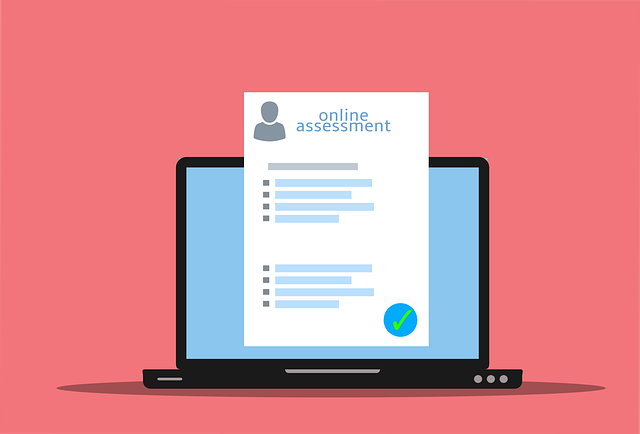Best E-Commerce Hosting Providers – Where You Should Host Your Online Store
The ability to sell your products and services online is critical to the health of your business. When you look for the ideal ecommerce hosting provider, you must define the factors and qualities you value the most. Every business is different, so we provide you ten of the top ecommerce hosting providers that will take your online company to the next level.
Each option has its unique benefits, features, and capabilities. In this article, we define the pros and cons of each option. We also dive into information about the security and support functions, pricing, and ease of use.
Top 10 eCommerce Hosting Providers
- BigCommerce – best for large-scale ecommerce businesses
- Shopify – best for saving time and resources
- Squarespace – best for design templates and small-scale ecommerce businesses
- Wix – best for beginners
- HostGator – best for ecommerce business owners with limited technical expertise
- A2 Hosting – excellent customer service, but lacks uptime
- Bluehost – strong uptimes and affordable price plans for all budgets
- DreamHost – best for storage and integration with WordPress sites
- SiteGround – provides both quality uptime and customer service
- InMotion – includes a top-notch support staff and storage space
HostGator
HostGator is one of the largest e-commerce hosting providers in the world. It delivers its website builder in Gator, and it provides a diverse set of services for business owners.
Gator is a simple and straightforward website builder. It is geared toward ecommerce business owners who have limited technical expertise. The drag-and-drop editor is intuitive and easy to get acquainted with. You can choose from a variety of templates that you can easily customize with the editor.
Pros
- The drag-and-drop editor is easy to use
- Social media integration is seamless and effective
- The beginner signup costs are minimal
Cons
- Not the most ideal option for complex ecommerce sites
- Help center capabilities are limited
- No email marketing integration
Features
HostGator delivers a set of essential features that you should expect from an ecommerce website host. No matter what pricing plan you elect to use, HostGator provides functions such as mobile-friendly templates, social media integration, SSL security certificates, site analytics, and domain name.
A bonus feature that comes with HostGator is its unlimited storage and bandwidth. This benefit means that you can upload unlimited content to your site. There are also no restrictions on the number of visitors either. If your site relies heavily on images and videos, then HostGator is a viable option for you.
Security and Support
Gator's support team is available to service you 24/7 via email, phone, and live chat. You also have access to the help center, which allows you to search for inquiries up to three words. The support team usually handles many requests on Gator, so there is a chance you may have a short wait time.
Gator's middle price plan does include a “priority” support team, which expedites your inquiries. On rare occasions, you have an emergency request, and the support team comes in handy.
Pricing
Gator has three different price plans that ecommerce business owners can register for on a monthly, annual, or two-year period. As with most pricing plans, the longer you sign up, the more cost-efficient the strategies are for you. Below are the 2-year costs for Gator's plans:
- Starter Plan – $7.68 per month (usually $9.98)
- Premium Plan – $11.98 per month (usually $12.98)
- eCommerce Plan – $18.45 per month (usually $24.98)
Although you receive all the essential features in the starter plan, the eCommerce option is designed to build a robust online store. This plan enables you to sell products on your website seamlessly.
Ease of Use
The onboarding process with HostGator is very straightforward. After you sign up for your plan, you begin by choosing a template or theme for your ecommerce site. HostGator organizes these templates by industry, and there is a search bar to utilize if you look for something more specific.
Once you select the template of your choice, you enter the drag-and-drop editor. The website builder allows you to drag almost anything onto your pages from the left-hand side panel and place it wherever you want. The panel also provides a secure method to switch fonts, resize text, and interchange pictures. You can also imbed enhanced features like videos, blogs, and social media posts effortlessly.
If you are entirely new to the game, Gator provides a clear and concise tutorial for onboarding. This tutorial outlines everything you need to know to get acquainted with the program.
A2 Hosting
A2 Hosting is a versatile provider because it delivers ecommerce hosting on all its pricing plans. The functions and features are not spectacular or unique, but the provider covers all the necessary qualifications for a formidable ecommerce hosting provider. A2 Hosting was founded in 2001 and is an independently owned company based in Ann Arbor, Michigan.
Pros
- Money-back guarantee at any time – full refund in the first month of signing up if you are not satisfied
- Robust security and servers
- Responsive and efficient customer service
Cons
- Somewhat complicated signup process
- The uptime is not as effective as other competitors on the market
Features
A2 Hosting provides pricing plans that are geared for ecommerce companies. No matter how much money you spend, your plan will set you up nicely for ecommerce capabilities. Every plan includes a complimentary control panel for cPanel and SSL certificates. A2 Hosting also provides advantageous discounts for non-profit organizations and eco-friendly solutions.
The provider has Turbo Servers that enable page load speeds that are 20x quicker than standard servers. Features like unmetered disk space and SSD storage also play a role in a fast, efficient user and visitor experience.
A2 Hosting's uptime is not its strongest quality. 99.95% is admirable, but it could be a lot higher. This uptime is a minimal guarantee, but you will find more reliable values with the competitors. A2 Hosting's customer service and load speeds make up for this disadvantage, so you need to focus on what you value you the most.
Security and Support
A2 Hosting's Guru Crew is available for users 24/7 via live chat and phone. The provider also has a search function and a knowledge base that contains insightful articles that are always available.
The free SSL certificate added to all plans will guarantee safety for your site and your beloved customers. A2 Hosting's Perpetual Security initiative includes HackScan protection that combats cyber-attacks. HackScan also contains a firewall for dual hosting, which protects against any unauthorized visitors.
Pricing
A2 Hosting offers a variety of plans that are catered to your specific ecommerce needs. Here is a quick outline of the different pricing options you can choose from:
- Shared Hosting ($2.99 per month) – ideal for personal blogs and smaller-scale operations
- VPS Hosting ($5 per month) – offers the same features as shared hosting, except provide more power and isolation
- Reseller Hosting ($13.19 per month) – allows you to host your customers and includes a complimentary billing system function
Ease of Use
One knock against A2 Hosting is its complicated signup process. The home page is disorganized and unclear about pricing upfront. The clutter makes the process much more complicated than it needs to be. The backend of the site seems slightly outdated and could be more intuitive for users as well. The cPanel variation makes up for these disadvantages because of the cleaner interface and intuitive editor.
Bluehost
Bluehost belongs to a small corporate called Endurance International Group (EiG), which governs many hosting providers. This provider is highlighted by a strong customer support team, efficient uptime, and substantial value for what you pay. If you host a WordPress website, then Bluehost will be a perfect companion for you. When it comes to reliability, Bluehost is an excellent choice.
Pros
- Strong uptime guarantee
- Integrates nicely with WordPress sites
- Affordable price plans for all budget sizes
- Robust storage plans – many of the pricing plans (except basic) offer a healthy amount of storage
Cons
- Annoying upsells – the system continually tries to upsell you on an additional feature
- US-only servers – web visitors that come from other countries may face slow load speeds
- Migration is not free, unlike most competitors
Features
The most impressive feature of Bluehost is its WordPress integration. But many other features make it a quality program to use for your ecommerce site. The first is domain registration, which comes free if you sign up for a 1-year plan. This feature does not come with the domain registration fee, however, which you must pay for.
The website builder also comes with a drag-and-drop feature for beginners. If you have no idea what you are doing, HTML and CSS skills will not be required. You can use the editor to click and place text, photos, and other elements on the page.
Bluehost also provides unlimited data transfer for most of its pricing packages. It also utilizes a control panel, which is a reliable website management system. You also do not have to worry about losing critical files because Bluehost provides many crucial backups with its plans.
Lastly, Bluehost provides storage from 50GB to unlimited space for your site data and files. It covers everything from a blog with a few products to a full-fledged ecommerce site with hundreds of products.
Security and Support
All Bluehost pricing plans include a free SSL certificate. This benefit ensures your site visitors that they can navigate your site safely and securely. If you want additional protection, Bluehost provides a premium SSL certification for $50 per year. For the more significant ecommerce sites where users log in with a password and username, this could be a valuable option to add.
Bluehost sites also come with Spam Assassin protection, Secure Shell access, and hotlink protection. The provider sets up multiple security barriers to help you get your website started.
When it comes to the customer support team, you can contact help via email support tickets, live chat, and 24/7 phone support. The provider also comes with a knowledge center that is searchable and contains live chat options. It would be nice to have information on a specific team member to reach out to in the future, but we were impressed overall by the support.
Pricing
Bluehost delivers excellent value for your money. A unique feature of their pricing plans is that all of the packages come with a 30-day money-back guarantee. Here is a full list of the different price plans for Bluehost:
- Shared hosting plan – $2.95/month ($7.99 per month renewal)
- Shared WordPress hosting plan – $2.95/month ($7.99 per month renewal)
- WooCommerce hosting plan – $6.95/month ($13.99 per month renewal)
- VPS hosting plan – $18.99/month ($24.99 per month renewal)
- Managed WordPress hosting plan – $19.95/month ($29.99 per month renewal)
- Dedicated hosting plan – $79.99 per month ($119.99 per month renewal)
Ease of Use
The registration process is confusing and somewhat tricky. It is also designed to upsell you on costly extra features that you will not need to get started. The backend workspace, however, was revamped in 2019. It includes a cPanel that has a custom version. Once you get past the consistent proposal and upsell banners, you will enjoy the simple drag-and-drop interface that Bluehost provides.
DreamHost
DreamHost, known for its versatile product offerings and ample storage space, provides hosting for over 1.4 million websites worldwide. All DreamHost's pricing plans will cover your specific needs, but how does the quality of the provider stack up?
DreamHost offers a good number of features, despite the lower cost. Their functions include unlimited bandwidth and storage, backup protection, 24/7 support, and complimentary SSL certificates.
Pros
- An excellent choice for cost-efficient hosting – pricing plans start as small as $4.95 per month
- Integrates well with WordPress sites – includes automated updates and quick installations
- Robust storage space capabilities – setup to serve reliable media sites with the unlimited bandwidth
Cons
- The customer support team does not come with a phone option
- Not a viable option for dedicated hosting
- Less than ideal uptime of 99.95%, which does not stack up with the competition
Features
DreamHost's features are consistent across its pricing plans. Depending on the pricing tier and type of hosting, you can choose from multiple packages. The provider gives all its customer complimentary daily backups, which creates a peace of mind. It also provides a free domain name for your first year.
Customers also receive a free SSL certificate to help protect the critical personal information of your customers. The certificate aids in boosting your SEO, so that prospects can find your website much more straightforward.
Another critical feature of DreamHost is the bandwidth. The provider does not track traffic or bandwidth, so every pricing package includes an unmetered transfer. You cannot always expect more significant spikes in traffic, so it is comforting to know that bandwidth limits will not be an issue.
DreamHost offers Random Access Memory (RAM), which keeps all the information and data stored on the server. If you operate a more significant ecommerce site, you will need more RAM to load and store it. The cloud hosting package provides RAM limits of 512MB-16GB. If you elect to go with a dedicated hosting plan, that range will increase to 4GB-64GB. These numbers are competitive with the industry average.
Lastly, the integration with WordPress is a massive benefit for Bluehost and its customers. One-click installs enable you to integrate your site with WordPress in a single step. WordPress automatically rolls out a new update, DreamHost automatically updates your website to reflect this change.
Security and Support
The glaring issue with DreamHost's support team is that you cannot contact them via phone. Customer support will reach back out to you on the phone to respond to a question, but you cannot contact them first through this method. However, it is a live chat function between 5:30 am and 9:30 pm PST for all seven days.
The security features of DreamHost outperforms the support. Each pricing plan includes a robust, complimentary SSL certificate. You also have prime access to the provider's malware removal, which monitors threats on your ecommerce site.
Pricing
All DreamHost's pricing plans give customers a money-back guarantee for 97 days. Although this is only applicable for debit and credit card payments for the shared hosting packages, this is a comforting feature for the new users on the site. The shared pricing plans cost between $2.59 and $4.95 per month.
The shared unlimited plan will contain what you need, including pre-installed WordPress functions, unlimited traffic, efficient SSD storage, and email capabilities. It is important to note that you will need to pay an additional $1.67 per month for email hosting.
Ease of Use
The setup process with DreamHost is simple and straightforward. Before you begin, you must decide what type of hosting you will require. Ecommerce sites usually perform well with VPS hosting or dedicated hosting plans.
When you register for DreamHost, you can easily add extras like additional security, domain name registration, and email hosting. The dashboard is custom-made and responsive to newer users. Although the site does not come with a cPanel, the interface is intuitive.
SiteGround
SiteGround was founded in 2004, based in Bulgaria, which now has over 2 million domains and 400 employees. The company's website has a support team available 24/7 and high loading speed for all its hosted sites. SiteGround's auto-install capabilities of ecommerce applications are one of its top features, but is it worth the investment?
Pros
- Intuitive interface – features are integrated nicely in the system
- Consistent assistance and support – multiple methods of interaction, tutorials, and guides
- Higher hosting speeds – unique hardware and software solutions result in above-average site speeds
- Top-notch uptime – the provider hovers in the 100% range, one of the highest on the market
Cons
- Price – you get good value from the provider, but it is one of the costlier options amongst its competitors
- Migrations – the professional website migrations cost up to $30, but there is a complimentary WordPress plugin for migration that you can utilize
Features
SiteGround integrates well with WordPress sites because it offers this hosting on all its pricing packages. The company takes care of automatic updates and command line management. If you have a flexible budget and are already using this kind of site, you should take a closer look at SiteGround.
For the ecommerce websites, GoGeek is the top plan that also integrates WordPress staging. The Git version control system also gets pre-installed, which is vital in managing coding changes for robust developer sites. This feature is helpful for sites that already have a web developer team.
SiteGround is also an excellent option for sites that need to scale. The company provides a product for cloud hosting, which is ideal for sites with higher traffic. In addition to cloud hosting, SiteGround also offers customizable enterprise hosting solutions.
Security and Support
Its many informational pages highlight the support functions of SiteGround. The generic knowledge page provides answers to general questions surrounding applications, cPanel, billing, and hosting. If you do not see the answer to your question, you can navigate the search box and find your answer.
SiteGround also delivers tutorials for WordPress, Magento, Drupal, and Joomla. The customer support team can also be reached through the 24/7 phone number, trouble tickets, and live chat support.
SiteGround has a free SSL certificate, but it also provides a monitoring system in-house that monitors your server's status every half second. The provider gives you complimentary spam protection and email message protection.
Pricing
All SiteGround's pricing plans include a 30-day money-back guarantee. It comes with three different packages:
- StartUp – $6.99 per month
- GrowBig – $9.99 per month
- GoGeek – $14.99 per month (most ideal for ecommerce stores)
Ease of Use
The signup process for SiteGround is simple. You select your hosting package, and then you are taken straight to the page to register your domain name for $16 annually. It is better to create your domain name elsewhere and transfer it to the site for free.
Once you get through the domain registration section, you enter all your necessary identification and payment details. The site also provides you options for two add-ons for the StartUp package users.
InMotion
InMotion is another popular U.S. ecommerce hosting provider that offers budget-friendly shared hosting pricing plans. This provider is an excellent option for scalability and Both VPS and shared hosting. You can start your website with InMotion as a smaller store, and then grow into a much more robust company with its many features.
Pros
- The support staff is highly trained to answer all your questions and needs
- Free SSL and unlimited disk space on its cheapest, most basic plan
- Ease of use – the backend is slightly outdated, but their system is easy to get acquainted with
Cons
- No windows servers
- No complimentary backups
- Devoid of some advanced hosting features – you are missing staging areas of a caching system
Features
InMotion is not short on valuable tools to power your ecommerce site. Even on the basic plans, the provider gives you free domains, SSL certificates, and unlimited disk space. Other features include WordPress shared hosting, virtual private services, and cloud VPS hosting.
All InMotion pricing plans also include $150 in free advertising credits. This feature will help you advertise your business when you first start. The provider also comes with one-click installs for the more popular apps like Drupal, WordPress, and Joomla.
Security and Support
InMotion's support staff is required to go through 160 hours of training before they begin the job. Combine this knowledge with the phone support and 24/7 live chat, and you will have all your issues and questions answered promptly.
As an InMotion user, you receive a free SSL certificate and standard malware protection. The security features are not as stable as some competitors, but they get the job done for your store. The provider also schedules automatic backups to protect your data, but you need to pay an extra fee to have this in place.
Pricing
All pricing plans for InMotion come with unlimited bandwidth, at least one email account, and a free SSL certificate. Here is a quick breakdown of the different pricing plans:
- Lite ($2.49 per month) – 1 website, 10GB SSD storage, and 100MB email storage
- Launch ($4.49 per month) – 2 websites, 50GB SSD storage, and 500MB email storage
- Power ($7.99 per month) – 50 websites, 100GB SSD storage, and 100GB email storage
- Pro ($12.99 per month) – 100 websites, 200GB SSD storage, and 200GB email storage
Ease of Use
InMotion's system is simple to use. If you are familiar with utilizing a cPanel, then you will pick it up very quickly. The backend part of the system is a little outdated, but the signup process and one-click app installation are straightforward processes.
Wix
Wix is the perfect ecommerce hosting provider for smaller websites and beginner web developers. It contains over 100 free design templates and an intuitive drag-and-drop editor to fit all your ecommerce business needs. This flexible website builder includes a robust app market to add extra functions for ecommerce and media needs.
Pros
- The drag-and-drop editor is easy to use and includes a side menu for adding apps and images
- Automatic website backups keep your critical edits safe and secure
- The help features are reliable and contain a searchable knowledge function
Cons
- Once your site is live, you cannot switch design templates
- If you want to scale your website, you will need to spend extra on apps
Features
The Wix ecommerce features allow you to sell an unlimited number of products, whether digital, physical, or service-oriented. You can prepare promotional codes or discount codes, manage your shipping options, and even oversee your store via the mobile app. The Wix app market provides hundreds of built-in functions and tools to take your store to the next level.
The Wix app Ecwid also plays a pivotal role in growing your business to the next level. This application allows you to set up inventory tracking, guest checkouts, social commerce, and other crucial features. You can also see how your store performs through the analytics feature, which provides an easy-to-read dashboard.
Security and Support
The support function for Wix includes an FAQ, email, and telephone number. There is no chat function, but there is a forum that you can submit issues and questions to. These responses are usually prompt and accurate.
Pricing
One downside of the Wix pricing plans is that none of them come with a complimentary domain. Luckily, each of the packages is affordable for all types of ecommerce needs. Here is a quick breakdown of the different options:
- Free ($0 per month) – create the website with Wix ads (domain name not included)
- Connect Domain ($5 per month) – you can connect your domain name with the site, but it will still show ads
- Combo ($13 per month) – suitable for the smaller professional sites (plenty of storage and no ads)
- Unlimited ($17 per month) – ideal for ecommerce sites that need a lot of space (up to 10GB)
- Business & Ecommerce ($23 per month) – the best option for the ecommerce store, which gives you access to the premium apps
Ease of Use
The ease of use is one of Wix's best qualities. For small business owners or beginning stage ecommerce stores, this provider is the perfect option. The beginning of the web design process is simple because you select two choices: Wix Editor or Wix ADI.
Wix ADI will do the work and design it for you, based on your answers to a few survey questions. The other option, Wix Editor, will allow you to use the drag-and-drop editor to place photos, videos, lines, and text wherever you want.
BigCommerce
BigCommerce is considered a top ecommerce platform because you can easily set up the store, add-in products, and make money seamlessly through the site. This specialized website builder contains various data tools, features, and processes to help you sell more products online. For more significant or fast-growing ecommerce businesses, this is the ideal platform for you.
Pros
- One of the best ecommerce platforms for scaling
- Contains more built-in features than most of its competitors
- You can cross-sell on many channels like Instagram, Facebook, and Pinterest
- Robust SEO tools built into the platform
Cons
- Complicated terminology does not make this an ideal option for beginners
- The advanced features take away from the ease of use
Features
BigCommerce's features are second to none when it comes to ecommerce. Starting with the dashboard, you receive a quick overview of your website's statistics. You can also customize this interface to show the data that you care about the most.
You can also list an unlimited amount of digital and physical products on your site. There are many color variants and customizable options for each of your products. If you already have your product information in a CSV file, BigCommerce offers a flexible transfer of this product information.
Another excellent feature is the multi-channel selling. You can integrate with Google Shopping, Pinterest, Facebook, Amazon, and eBay. Square also powers the in-person and online payment processing. BigCommerce sells internationally via multiple currencies and offers an accurate calculator for tax and shipping rates.
Other key features within the platform include:
- Inventory management
- Checkout functions
- Blogging
- Marketing
- SEO optimization
- Advanced features – search tools for specific products
- Analytics and reports
Security and Support
BigCommerce delivers live chat and 24/7 telephone support. The email support function of BigCommerce is unique because you receive an email for a 10-minute consultation right after you sign up for a free trial. Apart from the quick response methods, you also have access to video tutorials and the BigCommerce Help Center.
Pricing
BigCommerce provides a 15-day trial for its customers, which does not require an upfront payment. It allows you to test out the platform before committing to it long-term. The pricing levels are designed based on your store's online sales. Here is a quick breakdown of the different pricing tiers:
- Standard ($29.95 per month) – sales up to $50,000 per year
- Plus ($79.95 per month) – sales up to $180,000 per year
- Pro ($299.95 per month) – sales up to $400,000 per year
- Enterprise – customized for the high-volume stores
Ease of Use
BigCommerce is not the most intuitive platform. The design interface is split into two areas. The first is where you add your products and run the backend parts of the store, like shipping and discounts. The other area is where you edit and manage the storefront.
The terminology of BigCommerce is also what makes the ease of use so complicated. If you want an efficient site-building process, you will need to understand the technical terms that it provides.
The company is taking steps to make the editing process more manageable, however. The newer visual merchandising tool Store Design allows you to see the live effects of your changes and edits. You can enjoy a much more customizable ecommerce site-building process with Store Design.
Shopify
Shopify is another viable ecommerce hosting provider that helps you create an online store with limited technical skills. It powers over 800,000 businesses across the world. Some of its sales tools include multi-channel integration, over 100 payment gateways, and abandoned cart recovery.
Pros
- Robust inventory management system
- Multi-channel selling across Instagram, Facebook, eBay, and Amazon
- Abandoned cart recovery
- Designs – the site provides both quality and quantity with its mobile-friendly designs
Cons
- Enforces its transaction fee unless you utilize Shopify payments
- App costs can quickly add up when you integrate them into your store
Features
The Shopify platform is designed for ecommerce and comes with a variety of features. Products can easily be added via the interface, or you can import them through a CSV file. The “add product” fields are also simple and straightforward to fill out.
Shopify also utilizes a feature called categories, which allows you to organize your products much more effectively. The platform will generate a page automatically for each section, based on how you grouped them.
When it comes to payment processors, Shopify offers more types than any other competitor at over 100. Big names like 2Checkout, Stripe, PayPal, and others are included. Shopify has its system of Shopify payments, which they recommend you use. You will face a 2%, 1%, or 0.5% transaction fee if you do not elect to go with this option.
Security and Support
All Shopify stores automatically secure your data. You do not need to worry about protecting your site from cyber threats because it does that all for you.
When it comes to support, Shopify offers a wide range of help methods:
- Social media
- 24/7 telephone
- 24/7 live chat
- Community forums
- Email support
- Video tutorials
- Help center
Pricing
Here is a quick rundown on the pricing plans for Shopify:
- Basic Shopify ($26 per month) – allows you to sell unlimited products, but the provider will charge a 2% transaction fee if you do not use their payment system
- Shopify ($71 per month) – more ecommerce features included like abandoned cart recovery and gift cards
- Advanced Shopify ($266 per month) – receive advanced reports and get your shipping rates calculated automatically
Ease of Use
Shopify is straightforward to use because you can get your site up and running in less than five minutes. Shopify's web design interface is bright, clean, and straightforward to use. When you go through the setup process, there will be easy questions and prompts, which helps the provider cater to your website creation to your specific needs.
As you design your site, you can arrange the elements while a live preview shows up in the backend. The design templates are also easy to edit, and they are all mobile-responsive.
Squarespace
Squarespace, typically thought of as a blogging tool, is also a viable ecommerce provider for smaller stores. The platform contains a variety of beautiful design templates that are device friendly. The latest version of the system includes a G Suite, Cover Page Builder, and Getty Images.
Pros
- The design templates are creative and optimized for tablets, desktops, and mobile devices
- You can restore any deleted pages for up to 30 days
- Mobile apps enable you to edit your pages and execute ecommerce functions
Cons
- The editor can be too manual and complicated at times, requiring you to save your work after every change
- No app store included which makes you reliant on the built-in features
Features
Squarespace's social media integration makes it easy to link up to 20 platforms, including Twitter, Facebook, Instagram, and YouTube. You can also sync your store with Dropbox for seamless access to image collections.
SEO and marketing are also a strong feature of Squarespace. The platform provides guides to help you optimize your website to drive more traffic, which might seem overwhelming for beginner web developers. For the marketing function, you can integrate the platform's email campaign function or Mailchimp.
Security and Support
Squarespace offers everything but phone support. Here is a quick list of how you can get your issues taken care of through the platform:
- Live chat (Monday through Friday)
- 24/7 social media support
- Insightful knowledge base
- 24/7 email support
- Video tutorials
- Community forum
Pricing
Squarespace contains four different price plans, which range between $12 to $40 per month. All these packages come with unlimited bandwidth and storage, complimentary custom domain, an SSL security certificate. Here is a quick breakdown of the different price plans:
- Personal Plan – $12 per month
- Business Plan – $18 per month
- Ecommerce Basic Plan – $26 per month
- Ecommerce Advanced Plan – $40 per month
Ease of Use
Squarespace utilizes an intuitive drag-and-drop website editor. There is not as much freedom as other platforms because it is more section based. The interface is very crisp and clean, which makes it easy to work with. There is not clutter, and it is simple to navigate around. What you see is what you get with this platform, which allows you to make edits in the background and see what it looks like when previewed.














